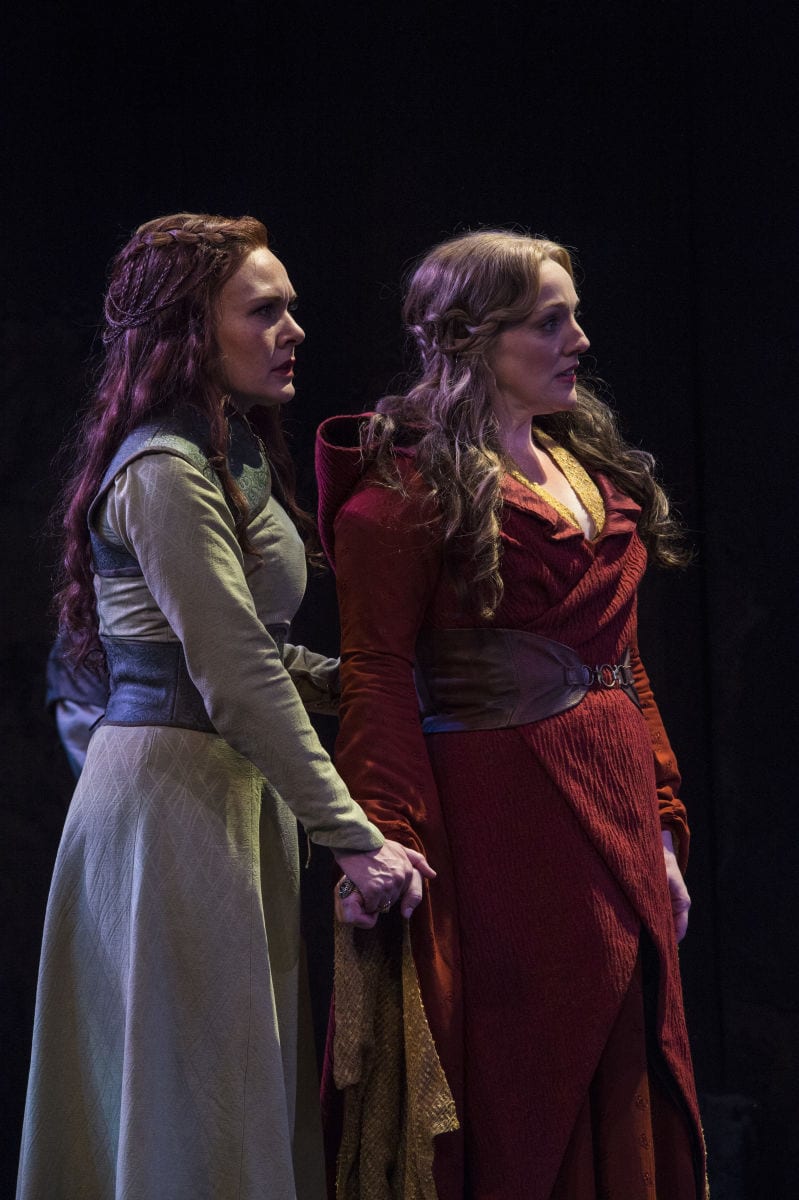
Written by Rachel Parry
Masterful acting within rich simplicity makes the 2015 production of “King Lear” at the Utah Shakespeare Festival a worthy addition to the many memorable productions that have graced the Adams stage.

Audience members return year after year to experience the unforgettable sense of well-being that accompanies a visit to the festival. Perhaps it is the regal serenity of the Adams outdoor theater itself that heightens our sense of security and only makes our hearts fall further with the emotionally-shattering experiences of the characters in the tragedy of “King Lear.”
The actors skillfully weave many moments of wit and humor as the story unfolds, but the reality to be faced is that, after all, family members and loved ones can disappoint or even betray us, and age and rank are not necessarily synonymous with wisdom.
This is evident from the play’s outset when the aging Lear, King of Britain, abruptly changes his plan to divide his kingdom from three portions to two in favor of Goneril and Regan, his two eldest daughters. Lear selfishly demands that each daughter make an extravagant declaration of love and fealty to him in order to “win” their inheritance. His youngest daughter Cordelia’s refusal to embellish her simple and straightforward statement earns her no property and Lear’s remonstration of her in front of the court. Not only does Lear come to realize that he has been deceived of the true characters of his daughters. The Earl of Gloucester also unwisely misjudges his sons.

This experience of looking with “new eyes” into the face of a loved one and seeing only a stranger continues to be experienced by characters in the play as brother turns against brother, child turns against parent, and friend against friend. The contrasting themes of blindness vs. sight, wisdom vs. foolishness, madness vs. sanity, and loyalty vs. abandonment drive the play on to climaxes of personal and relational destruction.
There are, however, some of the greatest moments of tenderness and human connection in all of Shakespeare’s canon interspersed throughout the story.
“King Lear” is tragedy on a grand scale, yet it reflects the challenges of individual and family relationships that are universal. Gaining an accurate view of another is not a simple task, and personal sacrifice may be part of the cost. Grade: A




